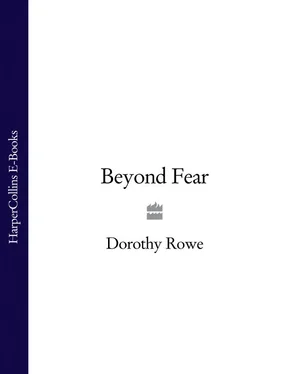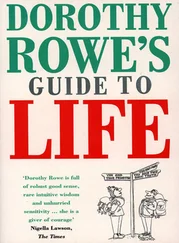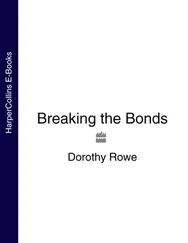To contemplate the significance of one’s life against the limitlessness of space and the infinity of time is to create a powerful sense of awe and dread. Sometimes this is a very sensible thing to do. It certainly helps in keeping a sense of proportion about our own anxieties and ambitions, but at other times such a contemplation brings a sense of powerlessness and insignificance which can be quite overwhelming.
We all first had this experience when we were children and learning about space and time. By then we had all come across death through the demise of grandparents or pets, or stories on television, or simply the unspoken threat of death in the instruction ‘Be careful crossing the road’. As young children we puzzled over the problem of what death is and we arrived at an answer.
Over the centuries of human life, death has been given many meanings. Yet in all, such explanations fall into two categories. Death is either the end of the person’s identity or it is a doorway into another life. ‘Another life’ can be described in a multitude of ways, but whatever the description given, it implies that some significant part of the person goes on existing after death.
The curious part of arriving at an answer to the question ‘What will happen to me when I die?’ is that even though we may use scientific methods in seeking an answer (‘Has anyone come back from death to tell us about it?’ ‘Are there such things as ghosts?’ ‘How many people could fit in heaven?’) the answer we arrive at is in terms of meaning. We discover a meaning for death which then gives meaning to our life. We say, ‘There has to be something after this. Otherwise, what’s the point?’ or ‘This life’s all we’ve got. It doesn’t make sense, the idea of an afterlife.’
In giving death a meaning, the end of identity or the doorway to another life, we fix the purpose of our life.
If death is the end of your life, then to be able to accept your death you have to live your life in a way that you feel is satisfactory. There are a multitude of ways of seeing life as satisfactory - by becoming rich, or famous, or having a good marriage, or having children, or having done most of the things you wanted to do, or just getting by without too much trouble.
If you see death as the end of life and find yourself failing to make your life satisfactory in the way that you want it to be, you feel fear. Death looms menacingly, you see time running out, and you feel the pain and guilt we all feel when we know that we have wasted our talents and thrown away our opportunities.
If you see death as a doorway to another life you are immediately confronted with the problem of justice. If the afterlife means that there is the possibility of going somewhere better than this present world with its troubles and pain, then our likely questions are ‘Does everyone go there? Is it fair that everyone goes somewhere better irrespective of the kinds of lives they lead? Should Hitler enjoy the same kind of afterlife as Mother Teresa?’ The answer that most people give to these questions is no. So the idea of an afterlife, whatever form it takes, contains some notion of justice. If you see your life as a doorway to another life you then feel that you have to achieve a certain standard of goodness and excellence which will allow you entry to a better life. When you see yourself as failing to meet the standards and rules of life beyond death’s doorway, you feel great fear. 3
Seeing death as the end of existence or seeing it as a doorway to another life are ways of trying to understand, not just our own life, but our life in relation to space and time. When we contemplate the vastness of the ocean or the immensity of the heavens, we feel great awe, a mixture of respect, fear and incomprehension. To reduce our fear and increase our understanding, we develop theories to explain, in the words of the Hitchhiker’s Guide to the Galaxy , ‘Life, the universe and everything’. 4
Some of us frame our explanation in scientific terms, and are left with puzzling things like curved space, a flat universe, black holes, and the question of whether there is life in other parts of the universe. A scientific description of life, the universe and everything is just as strange as a metaphysical or magical description. It gives rise to many fantasies, as the popularity of science fiction shows. In the end, a scientific explanation of life gives neither comfort nor security. To hold such beliefs and not be afraid requires courage and the ability to tolerate much uncertainty.
Not everyone can manage this, and so they turn to metaphysical or magical beliefs in order to find greater comfort and security. The scientific view of life and the universe sees us humans as just a small part of a vast complexity which will go on being itself with no more special regard for human life than it has for asteroids, atoms and the fifth dimension. Metaphysical and magical views of life place human beings at the centre of the universe where everything that happens relates to us and where we can influence vast forces and powers by our prayers, rituals and virtues.
Holding beliefs which place us at the centre of the universe under the control of a beneficent power can create a sense of security, and increased pride and self-confidence. Knowing that God loves you, or that your ancestors are watching over you, or that you are party to the forces of goodness which rule the world, can make day-to-day living simple and secure. However, the trouble is that everything in life has both good and bad implications. You win a lot of money in a lottery, which is good, and then all your impecunious, greedy relatives want to share your good fortune, which is bad. As an adolescent you look forward to being an independent adult, which is good, but as an independent adult you will have no one to look after you, and that can be quite bad. In the same way, our beliefs about the nature of life and death, whatever they may be, have good and bad implications. To rest secure in God’s love, or in the approbation of our ancestors, or in the power of the forces of goodness, we have to live our lives following certain rules, and if we fail to follow those rules then we are in great danger. The power which we perceived as protecting us can be turned against us and can threaten us with death and damnation.
In a group discussion about the experience of depression one woman described how when she was badly depressed she would wake during the night with the conviction that she should check whether her children were safe in their beds. She would get out of her bed to do this, but as she entered the hallway, all familiarity vanished and she found herself faced with a vast black hole. She was sure that if she took a step forward she would plunge into the hole, so she would stand there frozen with terror. The group discussed this in terms of how easy it is in the dark to lose contact with the most familiar of surroundings, and how the image of being depressed (frequently expressed as falling down into a bottomless pit) is experienced as something real and palpable. The woman listened to this and then said, ‘I think that your feelings summon up powers - good powers or evil powers - out there. If you feel terrible, inside you, then you somehow draw this terrible blackness towards you. If you feel good and happy, then you draw this goodness out there to you.’
This woman’s belief in supernatural powers was a comfort to her when she was happy, because happiness, she believed, attracted the benevolent power, but her belief also harmed her because when she was depressed she felt that she attracted the malevolent power.
We may try to deal with our fear of death by imagining that it will not occur for a long, long time. But if that is the case we have to travel through old age to meet death, and the prospect of old age can be full of terrors. No one likes the idea of becoming deaf, weak sighted, forgetful, frail and incontinent. No one wants to be treated like a foolish child by patronizing doctors and nurses and disrespectful relatives. Yet that is the fate which awaits many of us, and no matter what plans we may make to avert such a fate - by looking after our health, or making financial provision for a place in a superior nursing home, or threatening our relatives with guilt and retribution if they do not look after us properly - we can still be frightened.
Читать дальше












